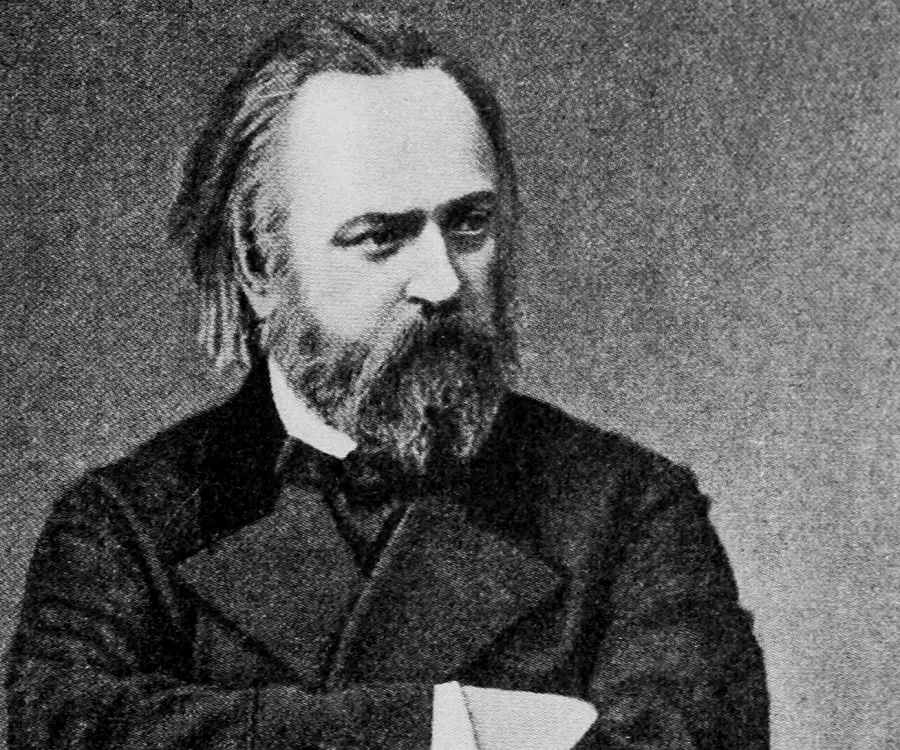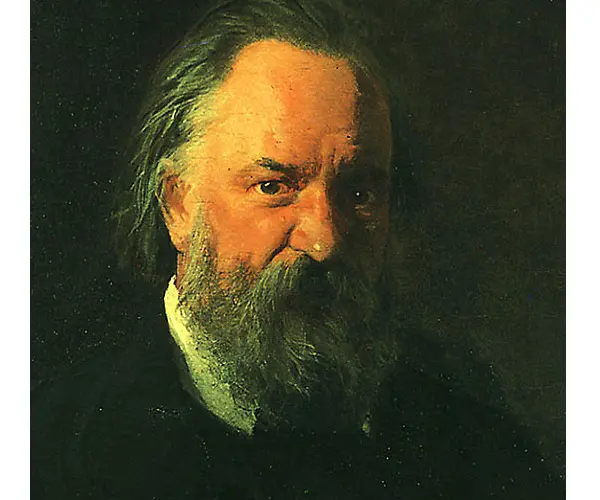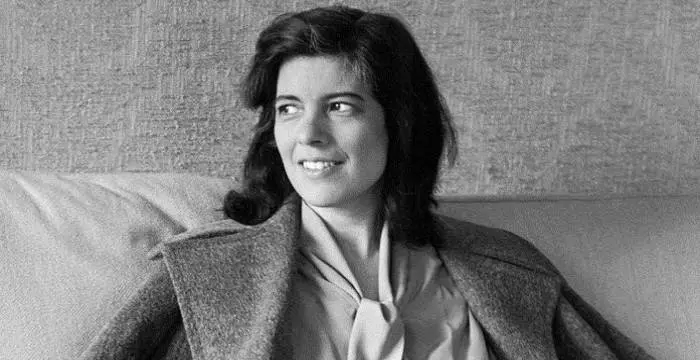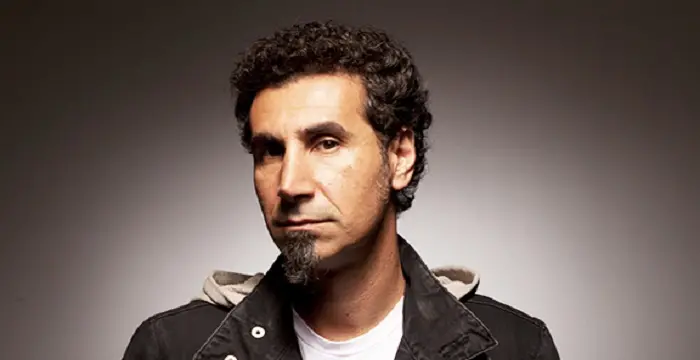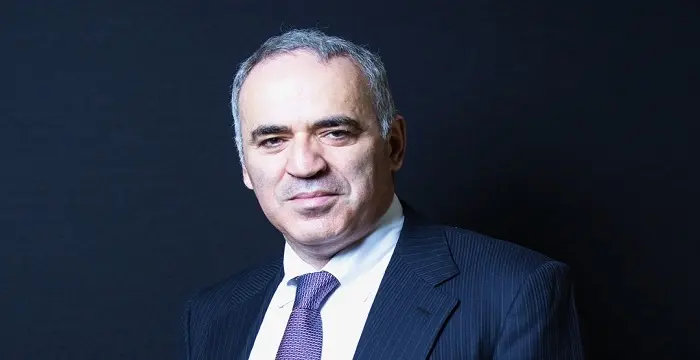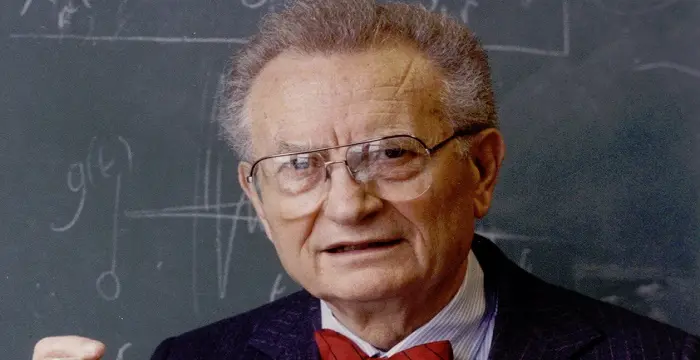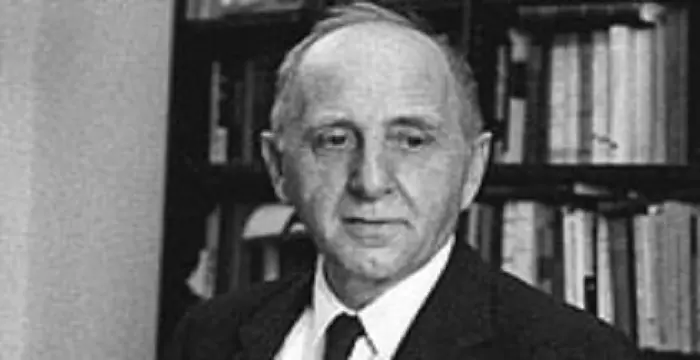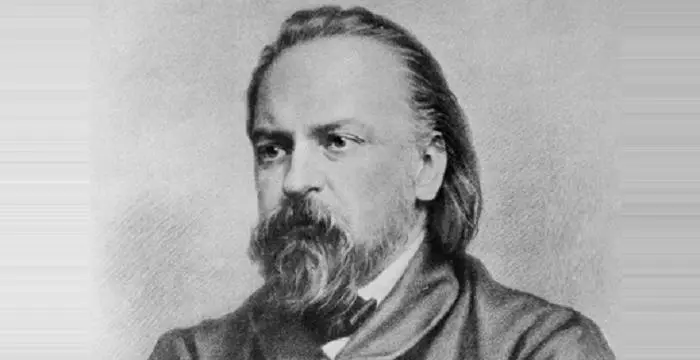
Alexander Herzen - Father of Russian Socialism, Birthday and Life
Alexander Herzen's Personal Details
Alexander Herzen was a Russian author and political activist, popularly known as the ‘Father of Russian socialism’
| Information | Detail |
|---|---|
| Birthday | April 6, 1812 |
| Died on | January 21, 1870 |
| Nationality | Russian |
| Famous | Political Activists, Intellectuals & Academics, Philosophers, Non-Fiction Writers, Father of Russian Socialism |
| Spouses | Natalia Tuchkova, Natalya Zakharina |
| Known as | Aleksandr Ivanovich Herzen |
| Universities |
|
| Birth Place | Moscow |
| Political Ideology | Political Writer |
| Gender | Male |
| Father | Ivan Yakovlev |
| Mother | Henriette Wilhelmina Luisa Haag |
| Sun Sign | Aries |
| Born in | Moscow |
| Famous as | Father of Russian socialism |
| Died at Age | 57 |
Alexander Herzen's photo
Who is Alexander Herzen?
Alexander Herzen was a Russian author and political activist, popularly known as the ‘Father of Russian socialism’. He fought all his life for emancipation of serfs. He provided the ideological basis for much of the revolutionary activity in Russia. His struggle for achieving liberty began in his undergraduate years when he was deeply influenced by the liberal views of Comte de Saint-Simon and Charles Fourier. His pledge to devote his life to liberation of Russia and establish a good social order was even more intensified by the injustice he faced from the anarchist rule. He was sent to exile for six years for an irrational crime and upon his return to Russia, when he raised his voice to oppose the injustice of police, he was again banished for two years from his country. When he came back to Russia after his second exile, he joined the liberation movement group and started his writing career. His literary works are considered to be influenced by his life and times in Russia during the socialist movement and therefore have a unique place in its history. Eventually, he left Russia and traveled Europe to support the emancipation of the serfs. Upon arriving in London, he opened a publication to expose the government’s corruption and encourage masses to fight against oppression. He dedicated his life towards creating an equitable society in Russia.
// Famous Political Activists
Susan Sontag
Susan Sontag is an American critical essayist, cultural analyst, novelist, political activist, filmmaker and playwright of international repute. Read on to find out more about her childhood, career, profile and timeline.
Serj Tankian
Serj Tankian is a famous American singer-songwriter and member of the band, ‘System of a Down’. This biography profiles his childhood, music career, life, achievements and timeline.
Garry Kasparov
Garry Kasparov is a Russian chess Grandmaster considered by many to be the greatest chess player of all time. This biography of Garry Kasparov provides detailed information about his childhood, life, achievements, works & timeline.
Childhood & Early Life
Alexander Herzen was born out of a wedlock on April 6, 1812 in Moscow, Russia, to Ivan Alekseyevich Yakovlev, a rich Russian landowner and Henriette Wilhelmina Luisa Haag, a German Protestant woman.
He was born shortly before the Napolean’s invasion of Russia and received his early education from French, German and Russian tutors.
He got enrolled at the University of Moscow and during his university years, the writings of Comte de Saint-Simon and Charles Fourier had a profound impact on him. He was drawn towards Saint-Simon's doctrines that criticized the shortcomings of the existing order and promised to end the exploitation of man by man. He completed his graduation in 1833.
He, along with his dear friend, Nikolay Ogaryov, took a strong pledge to devote their lives to continue the Decembrists’ struggle for freedom from Nicholas 1’s rule in Russia.
Career
In 1834, he was arrested for attending a festival where verses of Mikhail Sokolovsky that were critical of Nicholas's predecessors were sung. He was proven guilty and faced an exile from his country. He was sent to work in the provincial bureaucracy in Vyatka.
After few years, Herezen was allowed to leave Vytaka for Vladimir, where he was appointed as the editor of the city's official gazette. In 1840, he returned to Russia and obtained a post in the ministry of the interior at Saint Petersburg.
But his honesty sent him back in exile, this time to Novgorod, for speaking truthfully about a death caused by a police officer. He served as a state councilor in Novgorod until 1842.
Upon his return from the second exile, he joined the camp of Westernizers, one of the group of intellectuals who emphasized Russia’s common historic destiny with the Western Europe, as opposed to Slavophiles, who believed Russia should follow a course determined by its own character and history, for its development and modernization.
In 1842, his first literary work, an essay on Dilettantism in Science, was published under the pseudonym of Iskander. He continued his writing through ‘Letters on the Study of Nature’ (1845-46), ‘Who is to Blame?’ (1847) and few more.
In 1846, his father died leaving him a considerable fortune and he left Russia with his family to escape the despotic rule of Nicholas I. He never came back to Russia.
He was quite disappointed from his visit to France, where he experienced that the society was dominated by the members of the wealthiest social class who have acquired all the capital and resources with no virtues at all for the weaker section. He concluded that Slavophiles were right about the development of Russia and he started his movement towards this direction.
In 1852, he came to London and used his inheritance to start the ‘Free Russian Press’, first uncensored printing enterprise in Russian history. In the early published articles, he discussed about the emancipation of the serfs being the eventual result, if the upper class of the society does not give support in liberation of the serfs.
He promoted socialism and individualism for many years in London through his publication, arguing that the full flowering of the individual could best be realized in a socialist order.
In 1857, he launched Kolokol, censorship free newspaper of Russia, which spoke against oppression and fanaticism. It was dedicated towards the liberation of the country and preached about Russian socialism. It became a threat for high government officials exposing administrative corruption and was, therefore, silenced in 1868. After it was closed, he traveled to Paris.
Major Works
He developed a socialist philosophy, which provided ideological basis for much of the revolutionary activity in Russia.
One of his greatest literary masterpieces is his autobiography ‘My Past and Thoughts’ which is a source of information and insight into the Russian society under the reign of Nicholas I.
Personal Life & Legacy
In 1837, he secretly married his cousin, Natalya Zakharina, and emigrated abroad with her. They were blessed with four children but she died of tuberculosis in 1852.
After his wife’s death, he started an affair with his best friend’s wife, Natalia Tuchkova, and she bore him three children.
On January 21, 1870, he died of tuberculosis in Paris, France at the age of 57.
// Famous Philosophers
Martin Buber
One of the greatest philosophers to have ever walked on earth, Martin Buber contributions to philosophy is a long-standing one. Explore all about his profile, childhood, life and timeline here.
Lao Tzu (Laozi)
Lao Tzu was a legendary Chinese philosopher who wrote the important “Daodejing”. This biography profiles his childhood, life, career, achievements and timeline.
Alan Watts
Alan Watts was a famous British philosopher known for his Zen teachings and interpretations of Eastern philosophy. Read more about this great philosopher in the following article.
Alexander Herzen biography timelines
- // 6th Apr 1812Alexander Herzen was born out of a wedlock on April 6, 1812 in Moscow, Russia, to Ivan Alekseyevich Yakovlev, a rich Russian landowner and Henriette Wilhelmina Luisa Haag, a German Protestant woman.
- // 1833He got enrolled at the University of Moscow and during his university years, the writings of Comte de Saint-Simon and Charles Fourier had a profound impact on him. He was drawn towards Saint-Simon's doctrines that criticized the shortcomings of the existing order and promised to end the exploitation of man by man. He completed his graduation in 1833.
- // 1834In 1834, he was arrested for attending a festival where verses of Mikhail Sokolovsky that were critical of Nicholas's predecessors were sung. He was proven guilty and faced an exile from his country. He was sent to work in the provincial bureaucracy in Vyatka.
- // 1837In 1837, he secretly married his cousin, Natalya Zakharina, and emigrated abroad with her. They were blessed with four children but she died of tuberculosis in 1852.
- // 1840After few years, Herezen was allowed to leave Vytaka for Vladimir, where he was appointed as the editor of the city's official gazette. In 1840, he returned to Russia and obtained a post in the ministry of the interior at Saint Petersburg.
- // 1842But his honesty sent him back in exile, this time to Novgorod, for speaking truthfully about a death caused by a police officer. He served as a state councilor in Novgorod until 1842.
- // 1842In 1842, his first literary work, an essay on Dilettantism in Science, was published under the pseudonym of Iskander. He continued his writing through ‘Letters on the Study of Nature’ (1845-46), ‘Who is to Blame?’ (1847) and few more.
- // 1846In 1846, his father died leaving him a considerable fortune and he left Russia with his family to escape the despotic rule of Nicholas I. He never came back to Russia.
- // 1852In 1852, he came to London and used his inheritance to start the ‘Free Russian Press’, first uncensored printing enterprise in Russian history. In the early published articles, he discussed about the emancipation of the serfs being the eventual result, if the upper class of the society does not give support in liberation of the serfs.
- // 1857In 1857, he launched Kolokol, censorship free newspaper of Russia, which spoke against oppression and fanaticism. It was dedicated towards the liberation of the country and preached about Russian socialism. It became a threat for high government officials exposing administrative corruption and was, therefore, silenced in 1868. After it was closed, he traveled to Paris.
- // 21st Jan 1870On January 21, 1870, he died of tuberculosis in Paris, France at the age of 57.
// Famous Intellectuals & Academics
Bertil Gotthard Ohlin
Bertil Gotthard Ohlin was a famous Swedish economist. This biography profiles his childhood, family life & achievements.
Emily Greene Balch
Emily Greene Balch was an American economist, sociologist and pacifist who won the 1946 Nobel Peace Prize. This biography of Emily Greene Balch provides detailed information about her childhood, life, achievements, works & timeline.
Martin Buber
One of the greatest philosophers to have ever walked on earth, Martin Buber contributions to philosophy is a long-standing one. Explore all about his profile, childhood, life and timeline here.
Paul Samuelson
Nobel laureate Paul Anthony Samuelson is referred to as the ‘Father of Modern Economics’. This biography profiles his childhood, life, career, achievements and interesting facts about him.
Lao Tzu (Laozi)
Lao Tzu was a legendary Chinese philosopher who wrote the important “Daodejing”. This biography profiles his childhood, life, career, achievements and timeline.
Simon Kuznets
Simon Kuznets was a noted Russian-American economist, statistician, demographer, and economic historian. Check out this biography to know about his childhood, family life, achievements and other facts related to his life.
Alexander Herzen's FAQ
What is Alexander Herzen birthday?
Alexander Herzen was born at 1812-04-06
When was Alexander Herzen died?
Alexander Herzen was died at 1870-01-21
Where was Alexander Herzen died?
Alexander Herzen was died in Paris
Which age was Alexander Herzen died?
Alexander Herzen was died at age 57
Where is Alexander Herzen's birth place?
Alexander Herzen was born in Moscow
What is Alexander Herzen nationalities?
Alexander Herzen's nationalities is Russian
Who is Alexander Herzen spouses?
Alexander Herzen's spouses is Natalia Tuchkova, Natalya Zakharina
What was Alexander Herzen universities?
Alexander Herzen studied at Agrarian collectivism, Moscow State University
What is Alexander Herzen's political ideology?
Alexander Herzen's political ideology is Political Writer
Who is Alexander Herzen's father?
Alexander Herzen's father is Ivan Yakovlev
Who is Alexander Herzen's mother?
Alexander Herzen's mother is Henriette Wilhelmina Luisa Haag
What is Alexander Herzen's sun sign?
Alexander Herzen is Aries
How famous is Alexander Herzen?
Alexander Herzen is famouse as Father of Russian socialism
